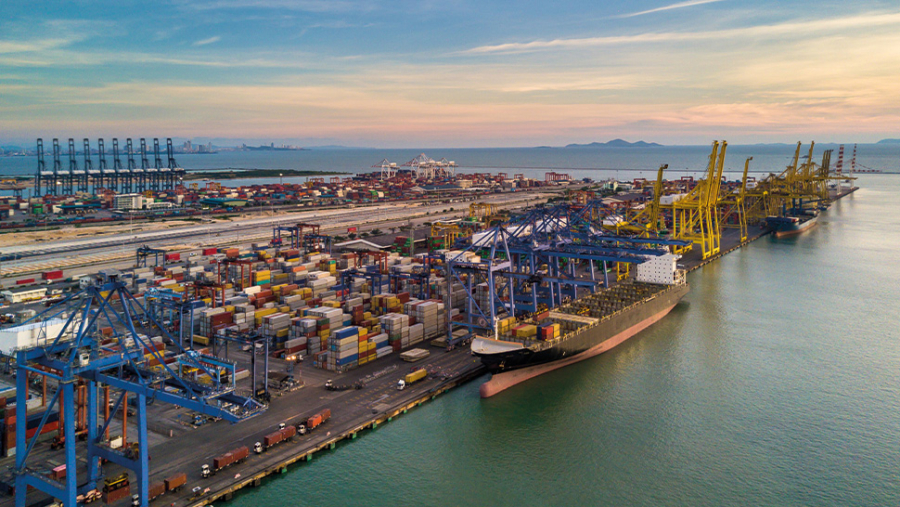

On 17 March 2023, China issued a draft regulation on derivatives trading, which could have significant implications for foreign companies since the regulation would cover derivatives trading where both parties are foreign. Derivatives trading happens when traders speculate on the potential price of a financial asset without having to own it. Examples include spread betting, Contract for Difference (CFDs) and forwards.
Normally, these trades are governed by English, Hong Kong or New York law – or the laws of the trading centre where they take place. That need not change, but the implications of China’s new reach need to be considered by anyone engaging in derivatives trades with even a tangential China connection. To a certain extent this approach mirrors the long arm of US federal law in regulating derivatives trading.
The background to this is the new PRC Futures and Derivatives Law which took effect on 1 August 2022. Seven months later, the China Securities Regulatory Commission (CSRC) issued draft measures on the regulation of derivatives trading – in Chinese《衍生品交易监督管理办法(征求意见稿) – with the intention of unifying the regulation of the derivatives market.
The eye-catching provision that could result in extra-territorial jurisdiction is found on the last page of the document and is worded as follows:
“Where an overseas operation institution and an overseas trading institution conduct a derivatives transaction outside China where the relevant hedging transactions take place within China, they shall comply with the relevant provisions of Article 12, and Articles 14 to 22 of these Measures.” (Article 50)
[Original text: 境外经营机构与境外交易者在境外开展衍生品交易,其对冲交易发生在境内的,应当符合本办法第十二条、第十四条至第二十二条等有关规定。]
This deals with the situation where non-Chinese institutional investors indirectly buy or sell Chinese domestic assets by trading in overseas financial products, usually over-the-counter, that are linked to underlying Chinese assets. These could be derivatives of commodities, shares or bonds.
International banks and brokers often craft derivative products of this sort for their clients, and the result is that these clients are indirectly investing in Chinese assets. Section 2 of Article 50 uses the phrase “对冲交易发生在境内的”, meaning “relevant hedging transactions take place within China”, and that is the catalyst for Chinese regulatory authority.
The problem is that we don’t know what that means. Without a carefully drafted definition, the default position seems to cover all trades anywhere in the world provided there are Chinese assets somewhere in the background to the traded derivative.
If Article 50 does apply to overseas derivatives transactions, the parties to those trades will need to comply with Article 12 and Articles 14-22 of the draft Measures. These are summarised below.
- Article 12 refers to compliance with the requirements of securities and futures trading centres. It is unclear how this will work if the trades are happening overseas, unless the CSRC expects the Chinese regulatory authorities responsible for the relevant underlying Chinese assets to place demands on overseas exchanges. This seems ambitious, since they would be demanding that international derivatives exchanges report their transactions to Chinese entities.
- Article 14 requires a calculation of the holding by the overseas investor to add to its total holding of Chinese assets. This is because the CSRC sees derivatives trading as a kind of loophole allowing untraceable indirect ownership of such assets.
- Articles 15 to 22 set out prohibited trading activities. These deal with fraud, insider trading, market manipulation etc which are illegal under most overseas regulations already. The issue here is that potentially such trades will bring the relevant parties within the ambit of Chinese law, whereas previously they would only have been dealt with by the operation of law in the relevant non-Chinese country.
What does this mean for you?
This draft regulation has been circulated publicly, and comments by interested parties are being sought. There is no guarantee that third-party opinions will be reflected in the final version of the regulation. However, UK and US financial institutions, especially those that do trade derivatives, may wish to seek clarification on Article 50.
Some institutions have already submitted their views, but since English language commentary by media and law firms – with the notable exception Chinese law firm of Jun He – seems to have overlooked the international implications of this regulation, it may be worth focussing on the extra-territorial aspect of the regulation.










